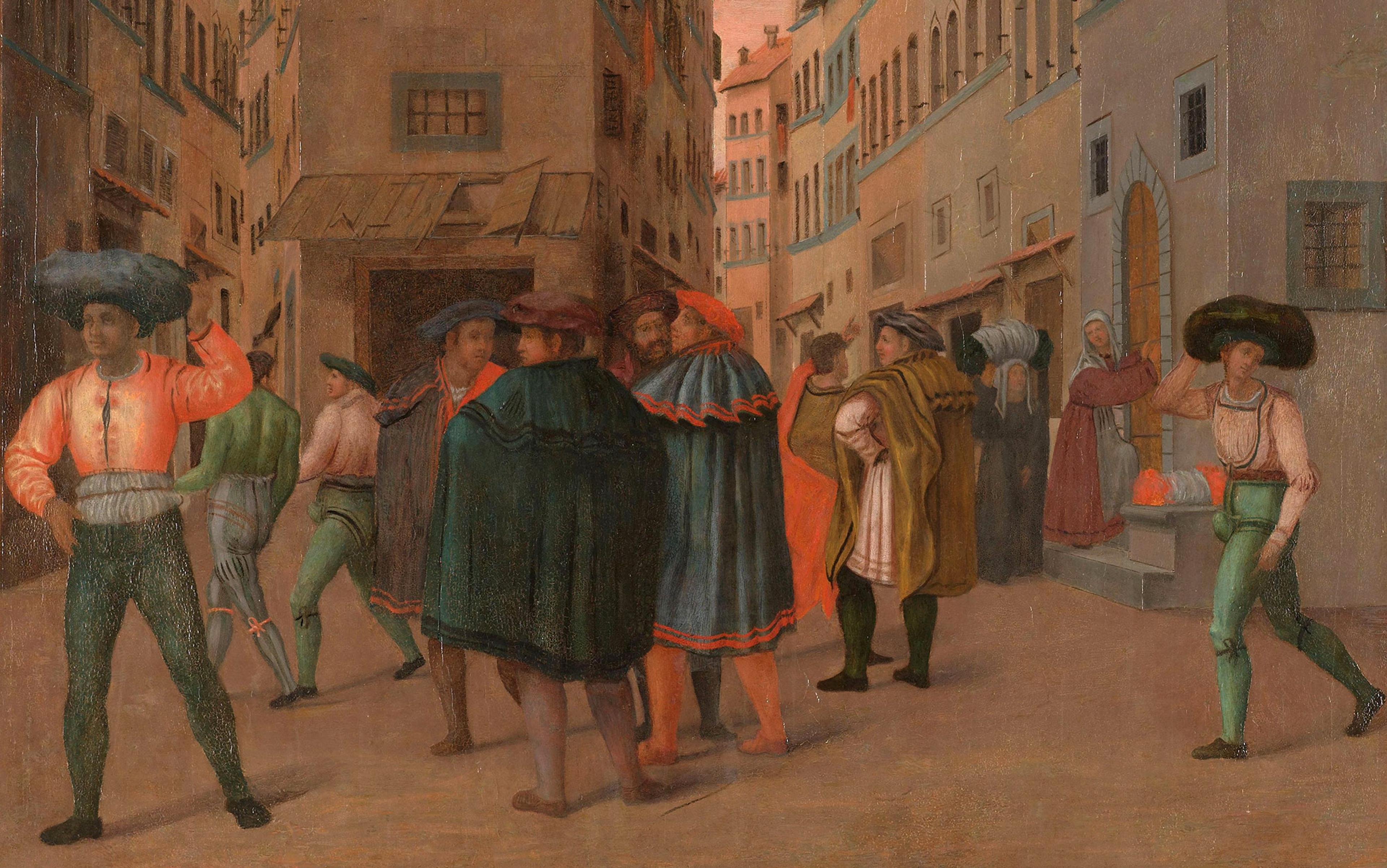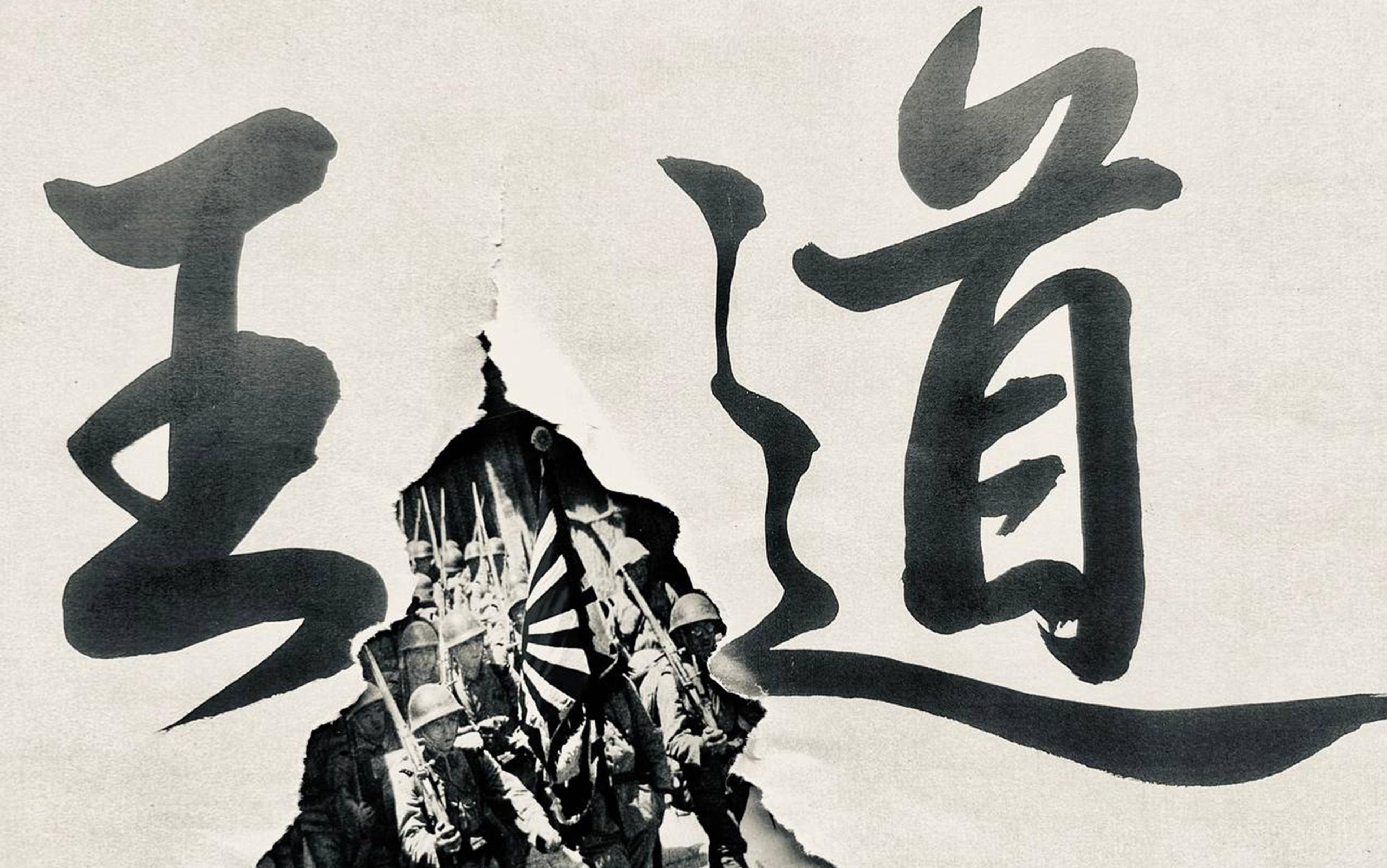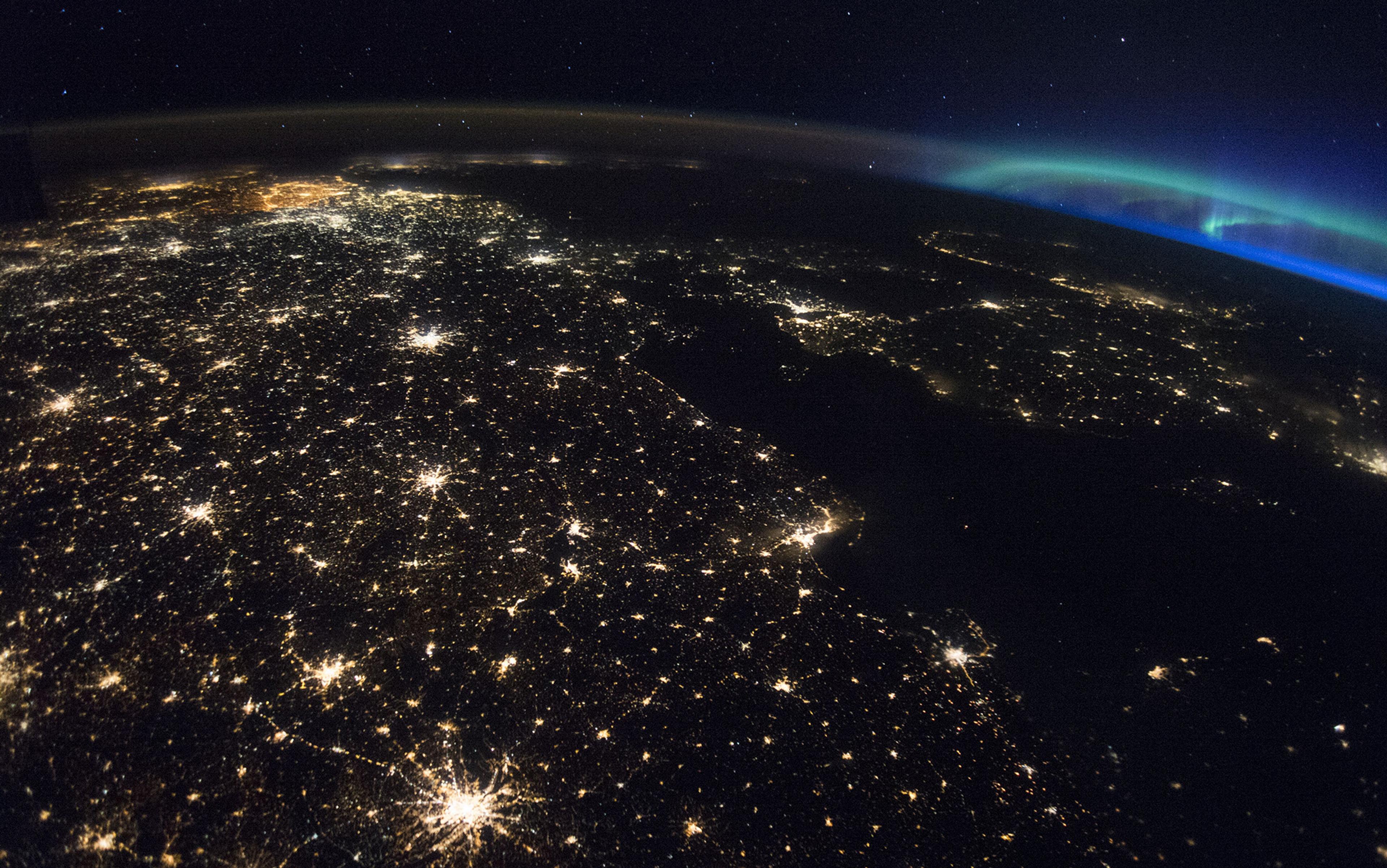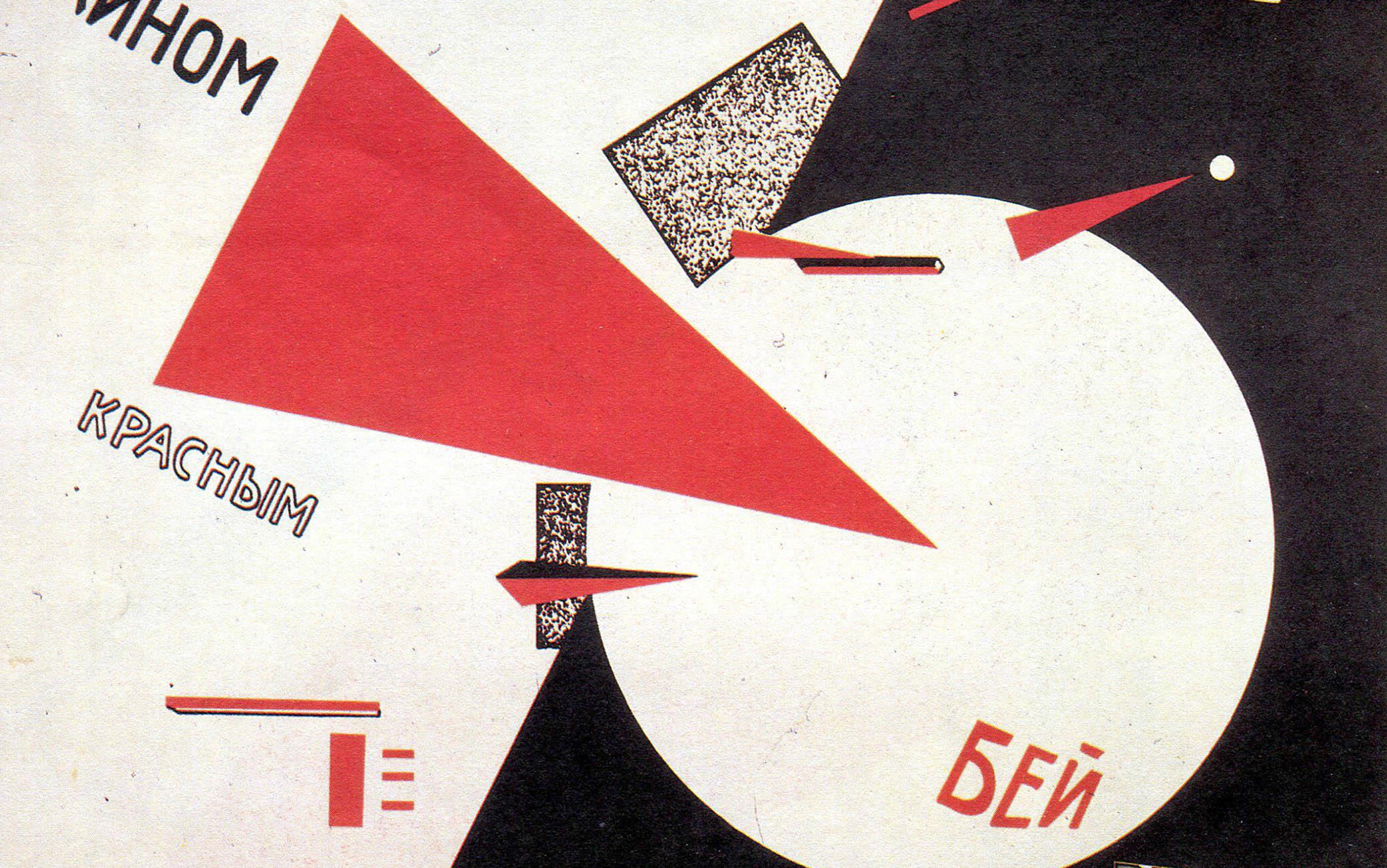Friedrich Nietzsche once wrote: ‘Mankind likes to put questions of origins and beginnings out of its mind.’ With apologies to Nietzsche, the ‘questions of origins and beginnings’ are in fact more controversial and hotly debated. The ongoing Israel-Gaza war has reopened old debates over the circumstances of Israel’s founding and the origins of the Palestinian refugee crisis. Meanwhile, in a speech he gave on the eve of Russia’s invasion of Ukraine in February 2022, Vladimir Putin insisted that ‘since time immemorial’ Russia had always included Ukraine, a situation that was disrupted by the establishment of the Soviet Union. And in the US, The New York Times’ 1619 Project generated no small amount of controversy by insisting that the United States’ real origins lay not with its formal constitution but with the introduction of slavery into North America.
In other words, many conspicuous political disputes today have a way of returning us to the beginnings of things, of producing and being waged in part through strong claims about origins. Yet doing so rarely helps resolve them. Because these debates have become ubiquitous, we may not realise how unusual our preoccupation with political origins really is. Beginnings are, after all, far removed from the issues at hand as to be a source of leverage in ongoing controversies or a source of controversy themselves. Why should the distant past matter more than the recent past or the present? To better understand why we remain bedevilled by the problem of origins, and perhaps to think more clearly about them in the first place, it may help to turn to a familiar but unexpected source: Machiavelli.
Niccolò Machiavelli is better known for his hard-headed political advice – it was he who wrote ‘it is better to be feared than loved’ – but he was also preoccupied with the role of violence in establishing (and re-establishing) political societies. Few thinkers have dealt so thoroughly and so troublingly with the theme of political origins as Machiavelli, leading the French philosopher Louis Althusser to call Machiavelli the ‘theorist of beginnings’. For Machiavelli, origins are chiefly of interest for two reasons: first, they reveal essential truths about the impermanence of political life that are otherwise obscured by ordinary politics; and, second, their violent conditions are in principle replicable always and everywhere.
Machiavelli’s perspective is moreover useful to us – because of the way he stands outside of our liberal tradition. Every society in history has had its origin stories, but the question of beginnings poses particular challenges for those of us living in the kinds of modern states that first began to take shape in the 17th century. For their legitimacy rests upon their deliberative and representative character. Nearly all existing states – even non-democratic ones – have some claim to represent a given people. Representative government is one of the ways that we assure ourselves that political power isn’t mere domination, and its rules and processes are intended to preserve the rights of the people who establish them. Consequently, we locate the origins of political society with that moment of establishment. The great liberal philosopher John Locke, for example, insists in the Second Treatise of Government (1689) that ‘the beginning of politic society depends upon the consent of the individuals, to join into, and make one society; who, when they are thus incorporated, might set up what form of government they thought fit.’
However, what about the right of any given people to establish political orders in the first place? And if some do claim to establish a new political order, who gets to decide which individuals are included among ‘the people’ and which are not? Who decides what territory is rightfully theirs for establishing government? And how did it happen in the first place?
These are questions that modern liberalism is largely unable to face. John Rawls in A Theory of Justice (1971), perhaps the most influential work of political theory in the past 50 years, admits that his considerations of justice simply assume the existence of a stable and self-contained national community. Earlier, Thomas Hobbes and, later, Immanuel Kant had faced this question more squarely, but both warned against enquiring about the origins of our societies at all, for, as Hobbes wrote in 1651, ‘there is scarce a commonwealth in the world, whose beginnings can in conscience be justified.’
It is not that the liberal political tradition (which is the tradition of most of the world’s developed countries) is simply unaware of political origins; but it deals with them in a deliberate and abstract way that is removed from the messy historical realities behind the formation of states and nations. The opening words of the ‘Federalist’ essay, written by Alexander Hamilton in defence of the nascent US Constitution, posed the question two and a half centuries ago:
whether societies of men are really capable or not of establishing good government from reflection and choice, or whether they are forever destined to depend for their political constitutions on accident and force.
The US founders, in other words, consciously sought to create a wholly new society based upon just principles rather than the contingent events that gave rise to past governments, thus providing a model for future liberal constitutions. But accident and force are simply mainstays of history. And, as it happens, they are also Machiavelli’s bread and butter (or bread and olive oil).
Two of Machiavelli’s major political works, both published posthumously in 1531-32 – the Discourses on Livy, his magisterial treatment of the ancient Roman republic, and his Florentine Histories – open with discussions of the sources of populations themselves. Such questions concerning the origins of populations remain pressing even today, as indicated by the trendiness of the concept of ‘indigeneity’ – that is, the attempt to identify an authentically original people with a title to the land that precedes all others – which has been applied to places as disparate as Canada, Palestine, Finland and Taiwan. One sees a similar impulse behind certain Right-wing nationalist claims, like Jean-Marie Le Pen’s insistence that the true French nation traces back to the 5th-century coronation of Clovis I. We want an unambiguous point of origin to which a legitimate claim to territory might be fixed. Machiavelli, however, denies us such a stable point.
All natives were once foreign, their situation but the end result of some prior (possibly forgotten) conquest
At the outset of the Discourses, Machiavelli claims that all cities are built by either natives or foreigners, but then proceeds to give examples – such as Rome, Athens and Venice – consisting solely of peoples who were either dispersed or compelled to flee from their ancestral place into a new one by an invading force – that is to say, by foreigners. In many cases, the invaders who sent the natives fleeing were themselves fleeing conditions of war. Migrations, forced or voluntary, are very difficult to prevent. It is not the case, for example, that a general improvement of living conditions might ensure demographic stability. Desperation is only one cause of migrations. In the case of the Franks and Germans, not desperation but prosperity, leading to overpopulation, compelled men to find new lands to inhabit. Such was the origin of the populations that destroyed the Roman Empire, according to Machiavelli, reproducing the cycle that initially produced Rome in the first place by invading Italy and establishing the kingdoms of the early medieval period.
Machiavelli thus makes clear that all natives were once foreign (either the possibility of an ‘original’ people is ruled out or they are too archaic to speak of), and further that it may be assumed that their situation is but the end result of some prior (and possibly forgotten) conquest.
With this discussion of the foundation of Rome, Machiavelli illustrates the artificiality of ‘legitimate’ origins. He first claims that Rome had both a native founder in Romulus and a foreign founder in his ancestor, Aeneas, who settled in Latium after escaping the destruction of Troy. But this immediately undercuts any ancestral claim Romulus might have to the territory, insofar as it derives from the Trojan Aeneas’ conquest of the Latins (chronicled in Virgil’s Aeneid).
Moreover, Romulus is compelled to replicate the actions of his ancestor – for, as Machiavelli sees it, the founding of a new society is always a violent affair, entailing a crime of some great magnitude. Romulus provides the paradigmatic example with the killing of his brother Remus and his ally Titus Tatius. Of these terrible acts, Machiavelli makes the striking remark that ‘while the deed accuses him, the effect excuses him’. That is to say, the extraordinary act of founding a new city (and ultimately an empire) absolves – and, for that matter, requires – the crimes committed in the process. Romulus is just one among a number of quasi-mythical founders whom Machiavelli exalts as the most ‘excellent’ examples in The Prince, along with Theseus, Cyrus, and Moses. All secured the establishment of their new societies through violence. Even for Moses, the most consequential act is not the flight from Egypt or receiving the Commandments at Sinai but the slaughter of 3,000 Israelites (a number Machiavelli raises to ‘infinite men’) for the sin of worshipping a golden calf.
The mythopoeic truths societies offer for their origins can still be truths, even when the first beginnings remain shrouded in myth. Machiavelli claims he could provide ‘infinite examples’ – a favourite term of his – of the role of violence in forming and reforming political societies.
Machiavelli adds that the example of Hiero of Syracuse may also serve as a useful model. This move, however, pulls the whole discussion sideways: first, Hiero did not found anything – the city of Syracuse already existed when he came to power; and second, though Machiavelli will not tell us this here, Hiero is more commonly known as a tyrant, which is to say someone who acquires monarchical power rather than inheriting it. Machiavelli’s description of how Hiero acquired power is amusing and brief: ‘Hiero eliminated the old military and organised a new one; he left his old friendships and made new ones. And when he had friendships and soldiers that were his, he could build any building on top of such a foundation. So, he made a great deal of effort to acquire power, but little to maintain it.’
Machiavelli subsequently reveals that Hiero came to power through a conspiracy – employing mercenaries to seize control of Syracuse and then brutally cutting them to pieces while claiming political power for himself. In other words, if we want to understand what the origins of things really look like, we must consult such troubling histories.
Early in The Prince, Machiavelli notes of established rulers: ‘In the antiquity and continuity of the dominion, the memories and causes of innovations are eliminated …’ That is to say, most rulers – what he calls ‘hereditary princes’ – are the beneficiaries of some prior terrible actions on the part of a conquering ancestor who initially took the throne. To us they may not be soaked in blood but, go back far enough, and you will find a Romulus – or a Hiero.
Later in the work, Machiavelli remarks that it is relatively easy for a ruler to hold provinces with similar customs that he has already controlled for a long time. But by way of example, he offers France’s rule over Burgundy, Brittany, Gascony and Normandy; of these, the first two had been conquered only within Machiavelli’s own lifetime, and the third in 1453, less than two decades before Machiavelli’s birth. The ease with which the French crown held these possessions – as well as the fact that these regions are now simply thought of as French – is due not to their lasting ties but to the success with which they were initially pacified.
Whenever one identifies a situation of stable and orderly government, it can be traced back to some form of conquest, whether ancient or recent. The story of political societies is much like Woody Allen’s definition of comedy: tragedy plus time. As Machiavelli’s French examples indicate, the amount of time required may not even be significant if the act of conquest is a successful one.
You might have to kill your brother to found a great city, but what about your proposal on urban streetlights?
Machiavelli even emphasises that the violence involved in establishing societies can never be left fully behind. Machiavelli praises Cleomenes of Sparta for slaughtering the magistrates who stood in his way of renewing the laws of the city’s founder, Lycurgus – in an act that earns him comparison with Romulus himself. He also acknowledges the 15th-century Florentine rulers for their insight when they say it was necessary to put ‘that terror and that fear in men’ of the violence of foundings ‘every five years’.
Many readers of Machiavelli have difficulty reconciling his account of origins with our actual experience of political life. It is all well and good, they may think, to know that you might have to kill your brother to found a great city, but what if you just want to find a quorum for your proposal on urban streetlights?
Or, how does Machiavelli’s teaching about political origins help us understand the present world? For one thing, it offers insight into the recurring forms of violence that continue (and will continue) to break out along unstable borders and in places where states are still in the process of being formed.
The list of horrors surrounding the creations of 20th-century nation-states alone would include (inter alia): the genocidal expulsion of the Armenians in 1915; the postwar expulsions of ethnic Germans from neighbouring eastern European states; the mutual expulsions of Hindus and Muslims from Pakistan and India (respectively) during partition in 1947; the mutual expulsion of Arabs and Jews from Israel and its neighbours (respectively) from 1947-49; the flight of the pieds-noirs from Algeria in 1962; the displacement of Armenians and Azeris from Nagorno-Karabakh in the 1980s and ’90s; the mutual ethnic cleansings throughout the Balkan Wars of the 1990s, and more. Yet we still see these as exceptions to the rule of political order.
The chain of events that we associate with the formation of our modern states (and that provide the source of much ongoing controversy) is really only the latest series of links in a much longer chain that has no known beginning.
Accident and force still lie beneath the surface of our day-to-day politics, threatening to re-emerge. This is not an easy thing to accept. Even in quieter times, our consciences still trouble us, like Shakespeare’s Bolingbroke after he deposes Richard II. Moreover, we want to see our own foundations as not only just but secure. To see them otherwise is to acknowledge that our circumstances remain essentially in a state of flux. If all things are in motion, then what shall become of us?
Something like this anxiety seems to lie behind how we talk about political origins today. And, thinking with Machiavelli, we can see how the liberal tradition of political thought going back hundreds of years now has not prepared us well to think ethically about our historical origins. The result, when confronted with the subject, tends to be either a flight into defensive nationalism or moralistic condemnation.
While Machiavelli’s work can easily read like cynicism, a decent measure of cynicism is just realism. And an attitude of realism about political life can inoculate us from both sanctimony and despair, allowing us to honestly acknowledge the crimes that contributed to the formations of our own political societies without requiring us to become despisers of our countries.
We may learn from examples of the dramatic stakes involved in maintaining our political order
Similarly, it would be easy enough to read Machiavelli as debunking the edifying tales that surround the foundation of new societies, from the myths of ancient Greece to modern Independence Day celebrations. ‘This is what really happened,’ he seems to say. But it is important to recognise that his account of political origins is not intended to be incriminating but instructive.
For his work also bears a warning: the lawless and uncertain conditions surrounding our origins reflect enduring possibilities in political life. These are crucial moments in which our existing laws are revealed to be inadequate, because they were formulated under different circumstances than those we may presently face, thus requiring daring acts of restoration undertaken in the same spirit in which the laws were originally established.
We may not be obliged to follow directly in the footsteps of such tyrannical figures as Cleomenes of Sparta or the Medici of medieval Florence, all of whom employed terrible violence in the acts of restoration. But we may learn from such examples of the dramatic stakes involved in maintaining our political order – as the philosopher Claude Lefort put it in his magisterial 2012 work on Machiavelli: ‘This is the truth of the return to the origin; not a return to the past, but, in the present, a response analogous to the one given in the past.’
This is part of the value we gain from reading Machiavelli: facing the troubling implications of our own origins may help us better prepare ourselves for the continued vicissitudes of political life. After all, it may be that our own established order is the only thing standing in the way of someone else’s new origins.






